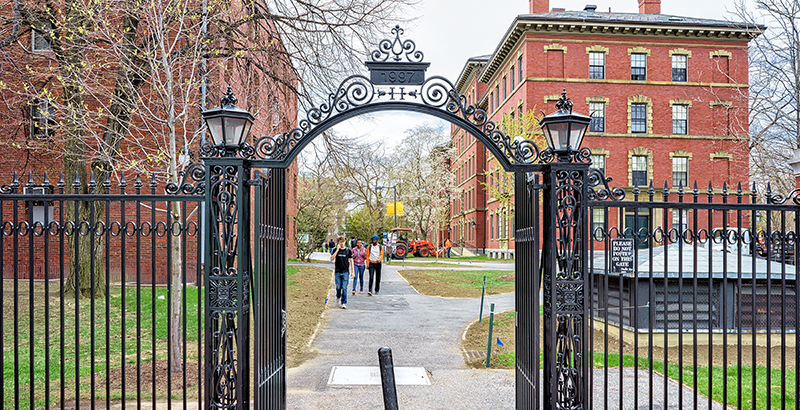College Search: 4 Steps Students Can Take to Find the University That Is the Best Fit for Them

This time of year, you can hardly look at a social media feed or talk to a parent without hearing the heartwarming story of a high school senior receiving college acceptance letters. Even better, we see thrilling videos of students learning they’ve received full scholarships to the universities of their choice.
Fantastic as these news alerts are, college acceptance is only part of the story. Most students will have to select a school based in large part on finances, and a shocking number of those who enroll in college will not graduate. These factors become even more relevant for students from low-income households, who are statistically less likely to complete a four-year degree than their higher-income peers — and if they leave college without a diploma and with student loan debt, their futures become extremely challenging.
It is estimated that by 2020, 65 percent of all jobs in the United States will require some form of postsecondary education, and 35 percent will require a bachelor’s degree. And yet, today in America, only 1 in 5 students from low-income communities who enroll in college will graduate.
The good news is, when given viable financial aid options, academic mentoring, and social-emotional support on campus, these students graduate from four-year colleges and universities at rates exceeding those of their peers. And we can solve, or at least make a sizable dent in, this talent gap by changing the way we prepare and support low-income and first-generation students before and during their college experience.
This starts with deciding which college to attend.
Students are often encouraged to select a college based on “fit,” a vaguely defined notion of where they feel they will best thrive. In our work with thousands of students, we’ve become much more prescriptive and have identified multiple characteristics of a college that will set a student up to succeed and graduate. These indicators may be helpful for any family deciding among acceptance offers.
Here is what we at College Track recommend students consider on their way into college, so they can extract the most value from their degree once they are out:
● Inquire about on-campus services for low-income and first-generation students, and what percentage of these students graduate within six years — and make sure you are satisfied with the answers.
● Review your financial aid packages to understand how much includes student loans. We recommend not exceeding $30,000 in total student loan debt, to best correlate payment plans with expected post-graduation employment.
● If possible, work while in college, but no more than 15 hours per week. This allows time for much-needed academic supports and personal wellness.
● Choose a college that connects undergraduates with networking and internship opportunities, and secure one or more internships while there. The College Track 2018 Social Mobility Report found that one internship increases the rate of full-time employment six months after graduation by nearly 40 percent, and two internships by 45 percent.
Approaching a college decision from this evidence-based approach changes the tone from emotional to logical. Of the students we serve who applied this lens to their acceptance decisions, 84 percent have graduated from college within six years.
Increasing the number of college graduates from low-income communities is imperative for the economic future of our country. If we want to meet the demands of today’s workforce and have a prosperous economic future, we need more students — particularly low-income and first-generation students — to earn bachelor’s degrees. We owe it to these students, and all students, to help set them up for success as they make their college decisions.
Elissa Salas is chief executive officer and Omar Butler is a regional executive director for College Track, a comprehensive college completion program empowering students from underserved communities. Both were the first in their families to earn college degrees.
Get stories like these delivered straight to your inbox. Sign up for The 74 Newsletter

;)